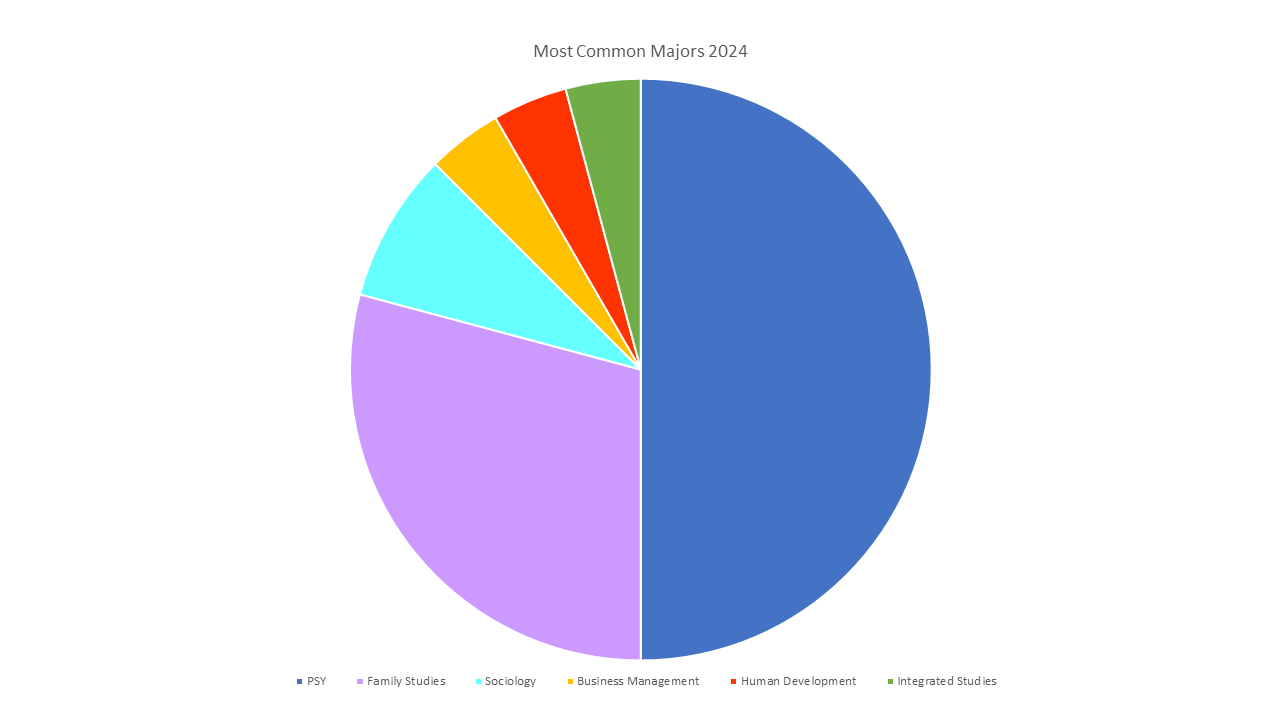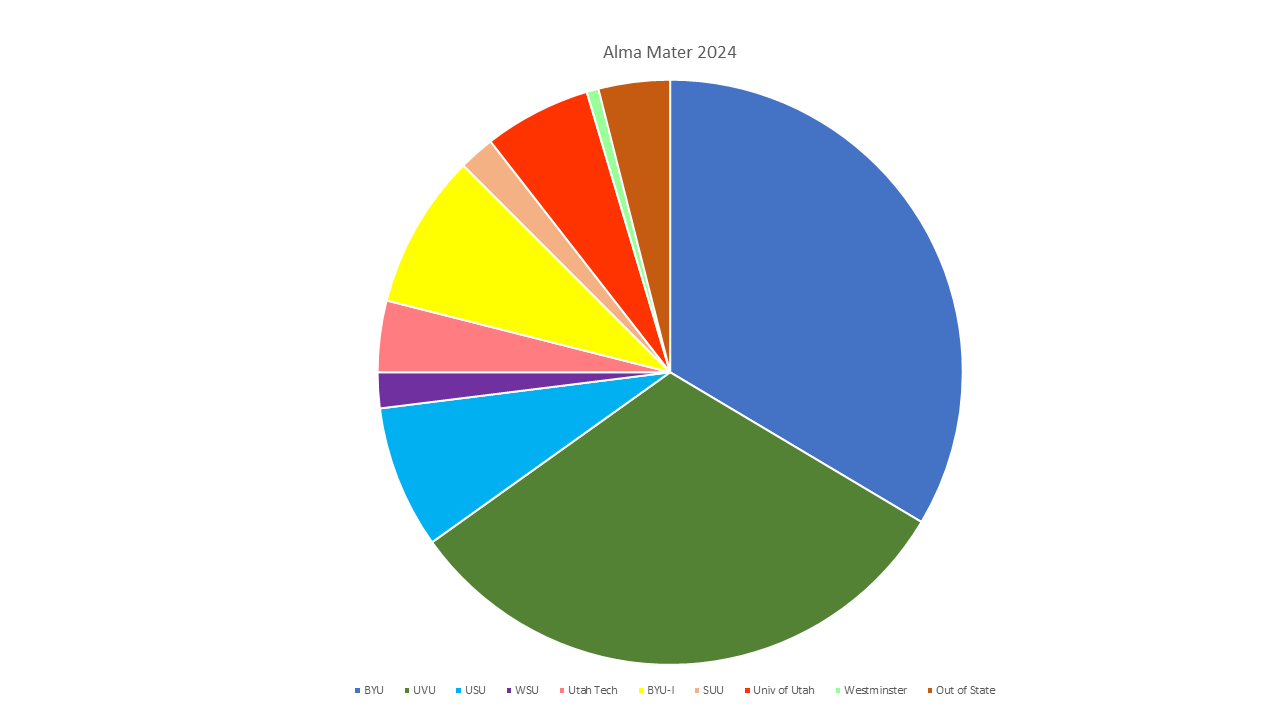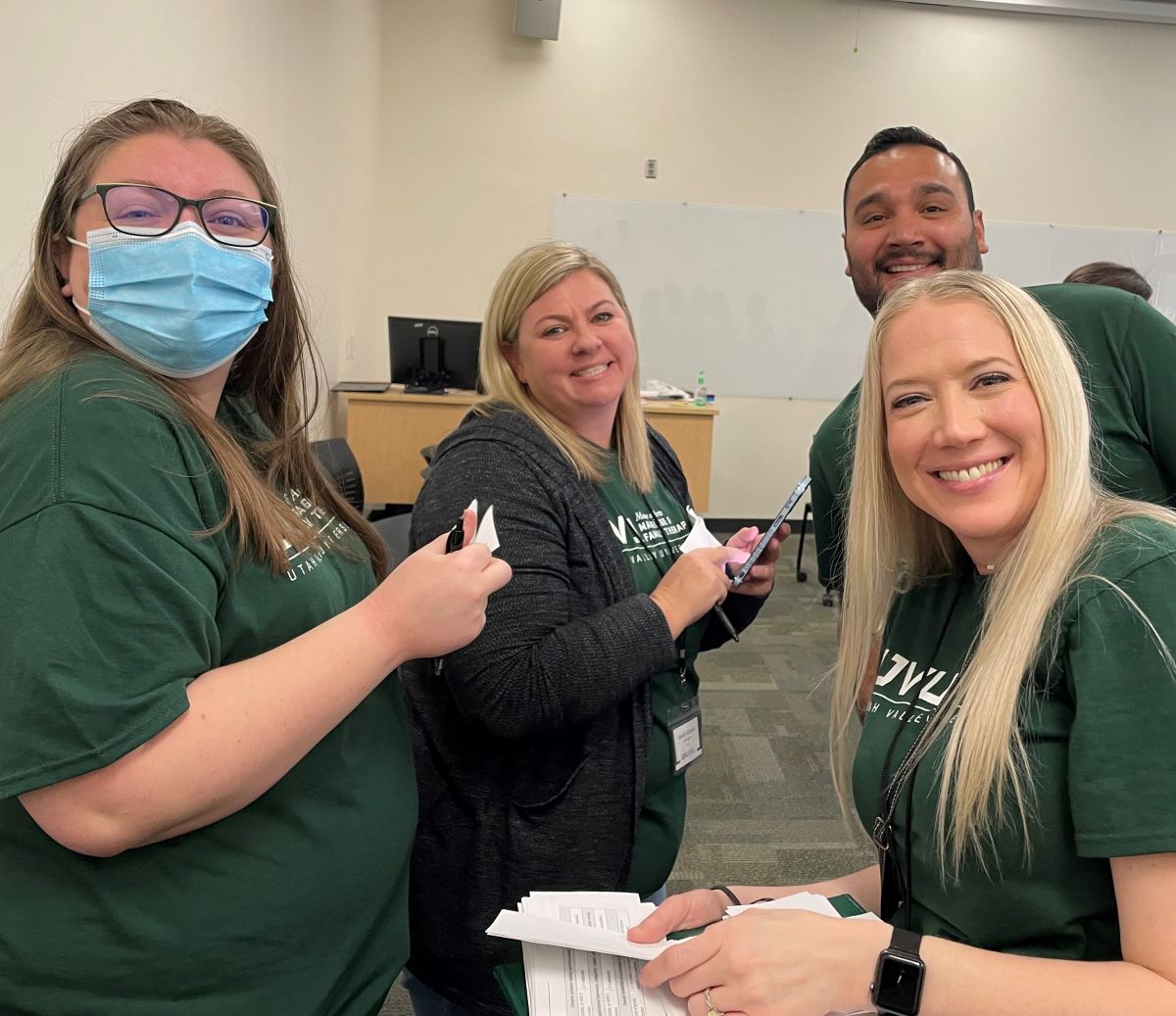Submit official university transcripts
Submit supplementary items
Three Professional References
Submit All Materials by Deadline (December 1, 2025)
The UVU MFT admissions process is competitive. Submission of materials does not guarantee acceptance into the program.
In accordance with federal laws and regulations, in our review of applicants, the MFT program does not discriminate on the basis of race, age, gender, ethnicity, sexual orientation, relationship status, gender identity, socioeconomic status, disability, health status, religious or spiritual affiliation, or national origin. (See FAQ re UVU applicant pool)
Grade Point Average (GPA) provides one piece of information about a student's readiness for the academic load required in a graduate program.
UVU has established a minimum expectation of 3.0 for cumulative undergraduate GPA. If an applicant's cumulative GPA doesn't meet that benchmark, the program can review the applicant's last 60 credits. If the applicant can provide an explanation for why those 60 credits should be considered above the cumulative GPA, an exception from the university can be requested.
Please note that while students may apply to graduate school while they are completing their courses prior to graduation, the program requires that the final official transcript show degree completion with GPA above 3.0
No. There is no required undergraduate major. Undergraduate majors for our 2024 cohort are:

No. The GRE is not required at this time for application into the MFT Program. If you have taken the GRE, you are welcome to submit that information as part of your application.
Many of our applicants have been out of school for a while. We find that this is a profession in which the personal and professional experiences of non-traditional students can be a significant asset. You are eligible to apply if you have completed a bachelor's degree.
One of the challenges faced by applicants who have been out of school for a while is finding at least two academic letters of recommendation, which are required. These letters can be provided by anyone who has seen you in an educational environment (e.g., Teaching at a school PTA or church meeting, leading a community class). We are looking for recommendations from people who understand the rigor of a clinical graduate program and who believe you will be successful in that kind of program. You may want to consider talking with former professors who remember you and could write an excellent letter of recommendation. You may also consider reaching out to professors who are looking for people to join their research team. Working with a professor gives them an opportunity to write a letter describing your professionalism, dependability, interpersonal skills, and overall readiness for graduate school.
You will need to provide 3 Letters of Recommendation (LOR), at least 2 of which should be from individuals who are capable of describing your educational ability. It’s helpful to have strong LORs from people who can speak to your academic ability and clinical potential. Some of the strongest LORs come from faculty members who have seen you during class, and also mentored you outside of class on a research project.
You want LORs from people who can speak to your ability to be academically successful in a graduate program. You also want LORs from people who can speak to your potential as a therapist. Along those lines, another example of a strong LOR could be an excellent letter from a current supervisor who has observed your work in a clinical setting/RTC. Additional letters from professors, supervisors, or colleagues who can speak to your interpersonal readiness for a clinical program are also helpful. If one or more of your recommendations is not positive, your application will be less competitive in comparison to other applications.
Each of the past four years, we have reviewed over 100 applications. From those applications, we selected around 70 candidates for a formal on-campus interview. From those interviewed, 24 people were invited to enroll in the UVU MFT Program.
The group of applicants who were selected to enroll in the MFT Program in 2024 identified themselves with the following characteristics:
| Average GPA |
Gender | Race/ Ethnicity |
Non- |
1st Generation Students |
Utah Residency | |
| Total 2024 Applicants |
3.61 | M = 39 F = 113 |
Asian = 6 Black/African American = 1 Pacific Islander = 3 White = 130 Hispanic/Latino = 15 |
Trad = 106 Non = 46 |
17 (11% of total) |
Residents = 113 Non = 39 |
| Selected 2024 Cohort |
3.71 | M = 6 F = 18 |
|
Trad = 11 Non = 13 |
2 (8% of cohort) |
Residents = 23 Non = 1 |

Individuals with graduate credit are welcome to apply to the MFT program via the regular annual application process.
The UVU MFT program has a residency requirement of 42/54 credits, which means the program can accept no more than 12 transfer credits. All potential transfer credits are evaluated by the Program Director in accordance with Graduate School policies.
Graduate Transfer Credit
Graduate credits from another regionally accredited institution or equivalent shall have been completed within four years of the graduate student’s matriculation into the graduate program and cannot be older than six years at the time of graduation with a master’s degree or a graduate certificate from the University. Graduate transfer credits are also subject to grade and grade-point average minimums of the graduate program. (Policy 524, Section 4.5.1).
Accreditation
As an accredited program by the Commission on Accreditation for Marriage and Family Therapy Education (COAMFTE), we are committed to preparing students for ethical, competent, and effective clinical practice. This includes training that supports the ability to work with individuals, couples, and families from a wide range of backgrounds, identities, and experiences.
Both our accrediting body and the professional ethics of the field require us to cultivate a respectful and inclusive learning environment. Students in our program will engage with material and clinical training that emphasize the development of cultural responsiveness and the ability to provide affirming care to diverse communities. This includes, but is not limited to, considerations of race, ethnicity, culture, religion, socioeconomic status, sexual orientation, gender identity, ability, and family structure.
We understand that students bring a variety of perspectives and life experiences to their training. Our goal is not to promote any particular political or ideological viewpoint, but rather to uphold the professional standards of our field and ensure that graduates are prepared to serve the needs of all clients in a compassionate and ethical manner.
COAMFTE Developmental Competency Components. "Awareness, knowledge and skill to responsibly serve diverse communities" (COAMFTE Accreditation Standards V12.5)
MFT Program Degree Portability Acknowledgment
To support our graduates in becoming licensed as MFTs in Utah, the UVU program curriculum and clinical hour requirements align with the educational requirements established in the Marriage and Family Therapist Licensing Act Rule, R156-60b. The UVU MFT Program is designed only to meet education and experience requirements for professional licensure in Utah.
Each state's professional licensing board establishes minimum education and experience expectations, which a program or graduate must meet to establish eligibility for a license in that state. Each state's licensing requirements are unique to that state; some states have similar requirements and other states vary greatly.
Any applicant intending to pursue licensure in a state other than Utah should note that the licensing process in another state could require additional coursework and/or clinical hours. It is each applicant's responsibility to compare licensing requirements in the state they wish to pursue a license to the courses offered and hours required by the UVU MFT program.
Personal Disposition and Program Standards
Most family therapy training programs employ both didactic and experiential teaching methods, in addition to supervised practice. Experiential methods frequently include asking students to attend personal therapy, and to explore their family of origin, personal biases, and emotional reactions. It is not uncommon for faculty and supervisors to challenge a student’s thinking process, emotional reactivity, or professionalism. Although the MFT faculty do not intentionally attempt to provoke emotional reactions from students, it is important for students to understand that there may be times throughout the program when they feel emotionally vulnerable.
One ongoing aspect of the program’s evaluation of student readiness for clinical work is that of professional disposition. Students are assessed on their professional attitudes and beliefs, and their receptiveness to feedback and challenges, including how students demonstrate these through verbal and non-verbal behaviors. These behaviors are subject to ongoing evaluation as part of the student’s professional temperament.
Faculty members and supervisors are professional gatekeepers, who have an ethical responsibility to ensure that students, trainees, and supervises are both academically and personally or emotionally prepared to remain helpful during intense clinical situations and crises. A student who is uncomfortable with being challenged or who expects to experience emotional safety in every aspect of the program should not enroll in the UVU MFT program.
Students should note that they may face remediation processes, which could result in dismissal from the program, for personal behavior that does not meet program standards.
For further clarification of program policies, we strongly encourage all candidates to read the MFT Program Handbook and MFT Practicum Handbook prior to applying to the program.

